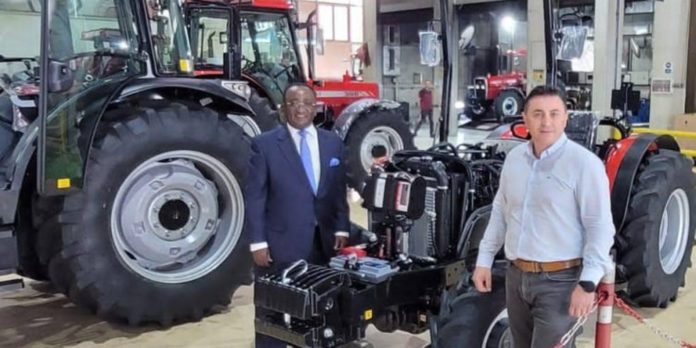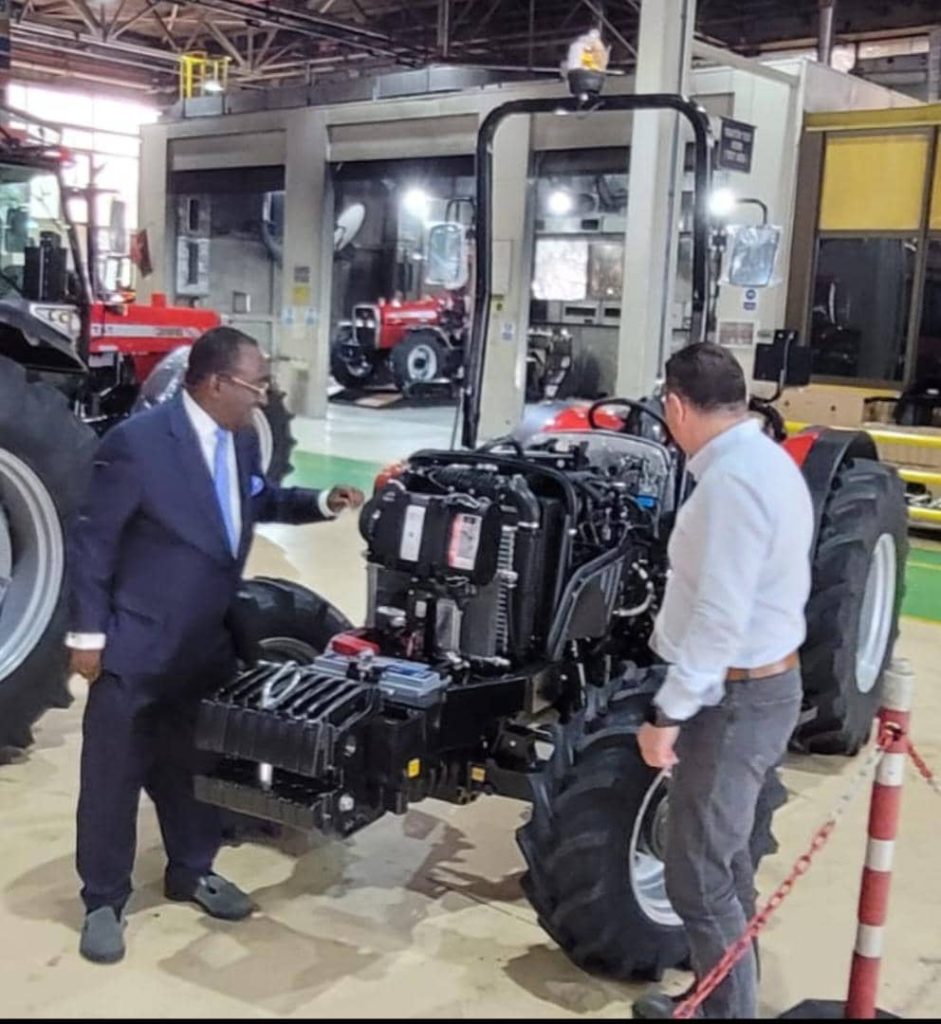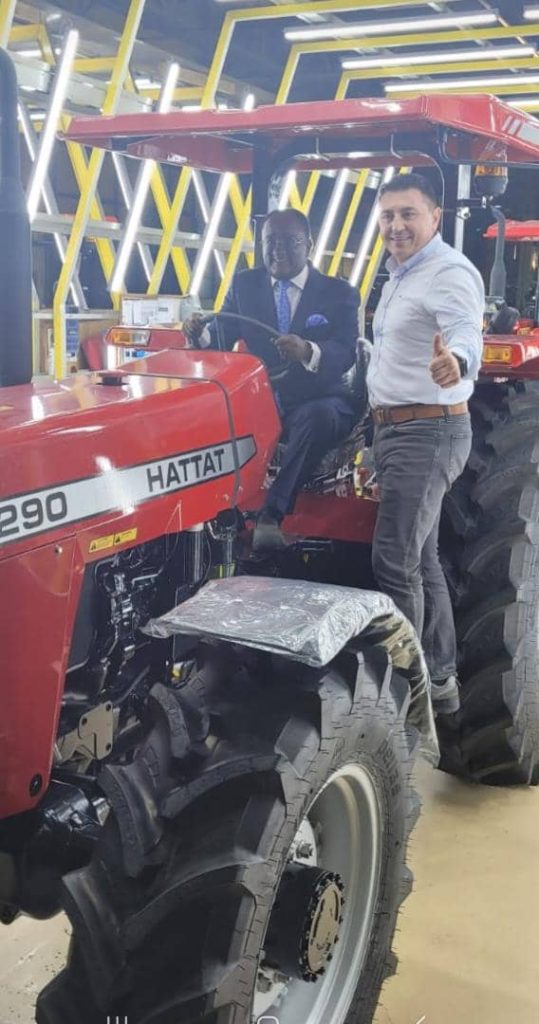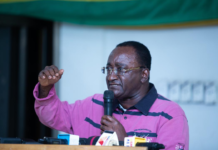
A flagbearer hopeful of the New Patriotic Party (NPP), Dr Owusu Afriyie Akoto, has secured a tractor manufacturing plant deal for Ghana to boost mechanised farming and increase agriculture growth.
The deal is also expected to benefit other countries in the West African sub-region.
This follows extensive discussions held between Dr Akoto, Ghana’s immediate past Minister of Food and Agriculture and directors of Hattat Traktör during his recent visit to Turkey where he delivered the keynote address as the Special Guest of Honor at the African Investors Council Forum.
The discussions primarily focused on the provision of enabling environment for the Hattat Traktör business to thrive, policy formulation aimed at protecting and supporting the business as well as issues of accessibility and affordability.
After the meeting, Dr Akoto, who is also a two-term Member of Parliament (MP) for Kwadaso constituency in the Ashanti Region, was then taken to the showroom of Hattat Traktör for inspection of their wide range of tractors that were on display.
“It is about time the world sees Africa as the next big destination for investment, especially in our agricultural sector. Available data points to the fact that Africa is going to feed the world by 2050. The directors of Hattat Traktör have this data and got even more convinced during the discussions.
“By establishing their manufacturing plant in Ghana, they will have full access to the ECOWAS community market and that will boost agriculture in Ghana and the West African sub-region”, Dr Akoto noted in an interview.

Having concluded initial talks on the investment potentials in the West African sub-region, the directors of Hattat Traktör, we are told, are preparing a visit to Ghana where they will officially present their proposal to the government for consideration.
Hattat Traktör established in 1998 manufactures tractor models with a horsepower ranging from 50-113. It produces models with advanced technology and low fuel consumption for ergonomic gardens, compact farming, and fields.
Hattat Traktör received awards for tractor of the year and cab design officer the year in Poland in 2010.
They were also recognised at the plough champion in Ireland in 2011, in Latvia in 2013, Silver Medal in Moldova Moldagrotech Fair in 2014 and the Tractor of the year in Poland with new T4000 series in 2016.
Available information indicates that Dr Akoto has already started some preparatory works for Hattat Traktör considering the importance he attaches to the agricultural sector which he has prioritized in his campaign message as the pivot to developing the other sectors of the economy when the right investments are made into the sector.
Ghana has 3.1 million professional farmers. A few of these farmers are into mechanized farming, with the majority being smallholder farmers. According to the 2021 edition of ‘State of Ghanaian Economy Report’ by the Institute of Statistical, Social, and Economic Research (ISSER), Ghana’s agricultural sector grew by 8.4% in 2021, the highest growth recorded in the 4th Republic.
To Dr Akoto, who has served in the UN systems for 18 years, the West African nation could achieve more if the country prioritizes public funding in the agriculture sector, with special focus on mechanized farming while resourcing the majority of smallholder farmers.

A study titled ‘Status of Agricultural Mechanization in Ghana: Insight from farmers’ perception, population, and nonagricultural sector growth’ published in the Hindawi Advances in Agriculture Journal has revealed that, “the overall level of agricultural mechanization in Ghana was found to be very low since averagely 77.6% of the farm operations are largely performed manually’. The study also revealed that below 20% of farm operations were mechanised in 2020.
On the modelling of the tractor power availability in Ghana, the study revealed that the number of people in Ghana employed in the service sector and the population in Ghana are key factors that affect the level of mechanical power availability for agriculture in the West African nation.
According to the study, the level of tractor power availability increased from 0.0207kW/ha in the year 2004 to 0.0588kW/ha in the year 2020 and is expected to increase to 0.0752kW/ha in 2025.
The study therefore, recommended that agricultural policymakers will have to design policies that help modernize agriculture through the transformation of the level from manual systems to highly mechanised systems where average more than 60% of the farm operations will be mechanised.
It further recommended that policymakers in Ghana should consider diversifying employment opportunities away from the service sector while encouraging more growth in the agricultural sector.
Moreover, measures to bring in more tractors while the population of the country is growing should be consciously pursued to help increase the mechanical power availability to levels that can bring about sustainable productivity.
Should the Hattat Traktör deal be sealed and the assembling plant built in Ghana, mechanised farming will rise at an exponential rate, thereby, sustaining food and nutrition security in the country and the ECOWAS community in general.







